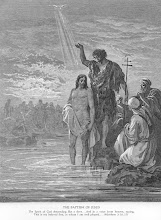News out today that the new missal translation for the english-speaking world has received the required 'recognitio' from Rome. Soon (hopefully not much more than a year) we will have a truly accurate, faithful and more obviously scriptural text with which to praise and worship the Lord at Mass in thevernacular of the Ordinary Form.
The Holy Father noted in his address to the Vox Clara commission - (an advisory body which has overseen the new translation - Bishop Philip Boyce being the Irish Episcopal Representative on it) that:
"I welcome the news that the English translation of the Roman Missal will soon be ready for publication, so that the texts you have worked so hard to prepare may be proclaimed in the liturgy that is celebrated across the anglophone world. Through these sacred texts and the actions that accompany them, Christ will be made present and active in the midst of his people."
He further noted: "A new task will then present itself, one which falls outside the direct competence of Vox Clara, but which in one way or another will involve all of you – the task of preparing for the reception of the new translation by clergy and lay faithful. Many will find it hard to adjust to unfamiliar texts after nearly forty years of continuous use of the previous translation. The change will need to be introduced with due sensitivity, and the opportunity for catechesis that it presents will need to be firmly grasped. I pray that in this way any risk of confusion or bewilderment will be averted, and the change will serve instead as a springboard for a renewal and a deepening of Eucharistic devotion all over the English-speaking world."
The entire address can be found HERE.
I have to say that I am delighted with this news and can't wait to use this new text in the celebration of the Holy Sacrifice. The translation may not be to everyone's liking, but surely it will be better than the banal and uninspiring translation we currently use.

